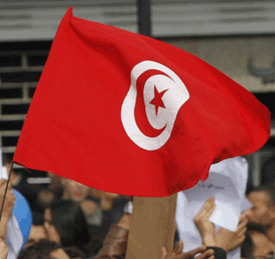By Racha Haffar
DUBAI, United Arab Emirates − Couchsurfing, the fast-growing concept of ‘surfing’ stranger’s couches, has been spreading quickly in recent years all over the world as an affordable way to travel. In Dubai, thousands of expatriates who come to this vibrant cosmopolitan city to work or pass through as tourists have discovered a cheap new alternative to fancy, luxurious hotels once they arrive here.
Couchsurfing (CS) is a global community of 6 million people who share their lives and traveling experiences. This network connects travelers globally with people who are willing to share experiences in profound and meaningful ways, making travel a truly social experience.
The community started in 2004 as a small project by students in Iceland who birthed the concept of sharing homes with “friends you haven’t met yet.” By 2012, 10.4 million couches had been ‘surfed.’ In addition to finding a free couch, people traveling alone have an opportunity to find a travel companion in their tourist destination.
Today, CS has more than 9,500 members with more than 6,500 willing to host travelers and share their unique cultures while discovering similar interests.
When I heard the term Couchsurfing for the first time in 2008, I became curious and wanted to discover what it was all about. I found myself passionate about its goals and aims and became a member. Since 2011, I have been a member of the Dubai CS community, where I generated the idea of establishing a weekly meeting that would occur regularly in the same place and time.
The weekly meeting has proven a great success. Residents and tourists meet, exchange cultures and foster respect for differences. We recently reached the 104th weekly meeting with more than 50 attendees.
In addition to the regular CS activities, many languages and cultural events occur throughout the year. I learned Italian from a Czech Couchsurfer, and in return I gave French classes on a regular basis. Outdoor activities such as camping and safari trips are organized, offering the community a greater opportunity for creating stronger bonds. Members can also go hiking, trekking, swimming or just enjoy a road trip with other CSers.
In every community, the local members nominate an ambassador who is active and dedicated to keeping the community organized. However, in the near future, there might be a new system of giving fixed responsibilities and duties to the ambassadors and allowing them a two-year mandate, just like a job, to guarantee the work is being performed well.
Ghaith Farfour, a Dubai CS ambassador who joined in 2011, expressed his pride in being a member. “I was in a hostel in Turkey when I heard of the concept of Couchsurfing. I did some research on my own and I was instantly hooked,” Farfour said.
“I think CS has enriched my traveling experience as well as my local Dubai experience. It is great to be a member of a community that is based on the greater good. I enjoy organizing events and I enjoy being a productive member,” Farfour said.
I believe the best thing CS offers is the chance to learn about other cultures and obtain deep insight about special features and secrets regarding a destination you plan to visit. Farfour agreed. “You have the different mindsets, backgrounds, philosophies, and ideologies that you meet every day or every week. A Couchsurfer can provide a non-typical tourist guide view of the city to his or her surfers. You have the potential of gaining lifelong friendships that are based on mutual interests and views of life.”
Inevitably the program has its drawbacks. “As everything else in life, whenever you engage in a new experience with high enthusiasm, it is difficult to find the negative surfaces in it, but with time, things appear and you start evaluating the entire experience better,” Farfour said. “Obviously with CS, the main issue I have with it is the misuse of the site by certain members who approach it as a dating site, which totally defeats the purpose.”
Other members misuse the concept and think CS is a free hotel service, and they do not follow or participate in the CS spirit of sharing and participation. In 2012, the government of Dubai censored the website www.couchsurfing.org and closed it for a couple of months when some outsiders tried to use the service to find rooms for romantic trysts.
I have also been an active member in the Tunisian CS community since 2008, where I have met amazing people from diverse cultures. I introduced a Cultural and Languages Exchange Meeting (CLEM) to the community, and it was a great success. Many Tunisians met with tourists in the old medina (city) to exchange knowledge about the culture and take a tour in the city to taste the traditional food and learn a bit about the Tunisia’s unique civilization.
Rached Khalsi has been the ambassador of the Tunisian CS community since 2011 and was nominated to the position by Couchsurfing board members. Khalsi said the position and program have given him a different experience than any other social experience. “It is not a community; rather it is a big family with various cultures and backgrounds.”
Personally, this experience has given me more than I ever expected to learn from attending university and reading books, as it is alive, real and interactive.
Racha Haffar is an Atlantic Post contributor based in Dubai, UAE and Tunis, Tunisia.
To see original, click here.


